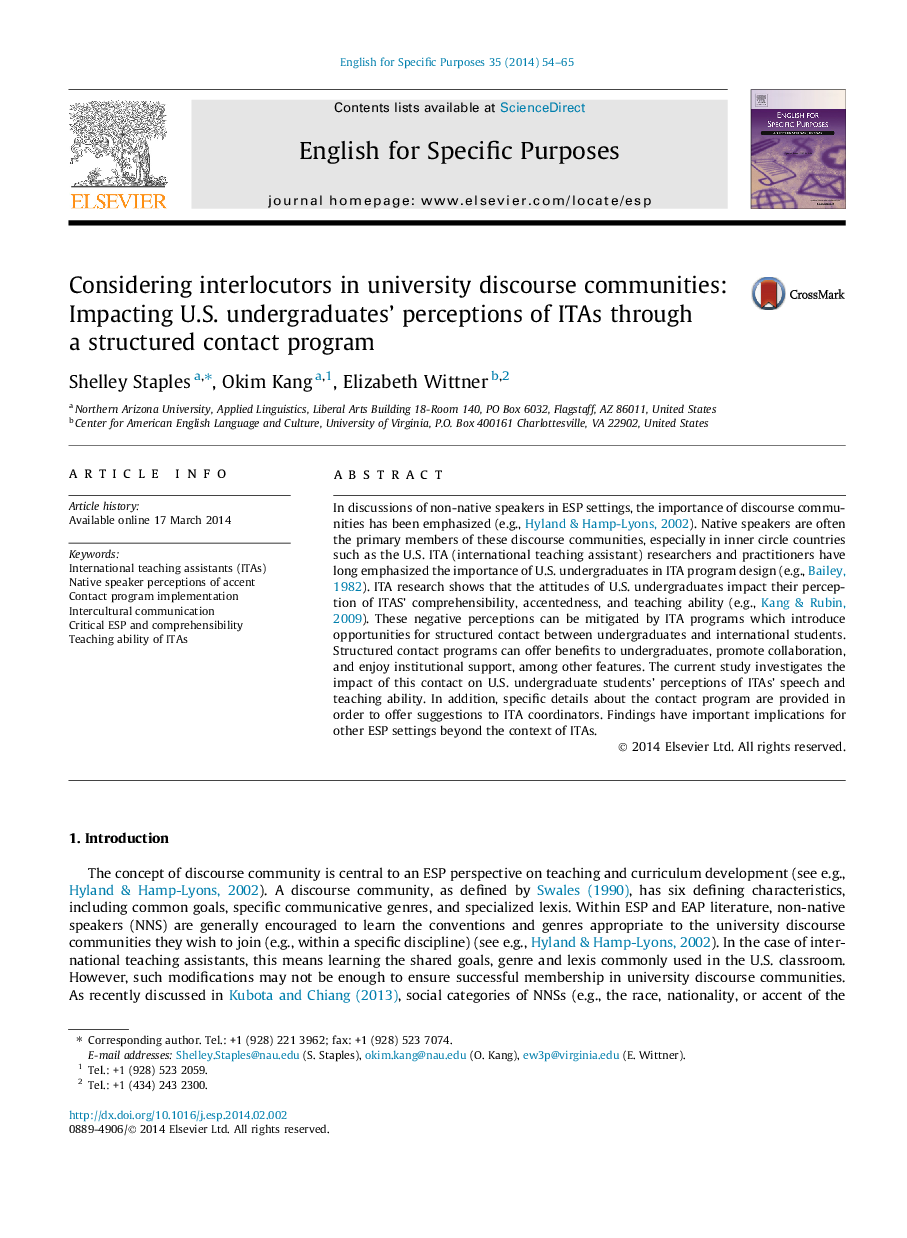| Article ID | Journal | Published Year | Pages | File Type |
|---|---|---|---|---|
| 355367 | English for Specific Purposes | 2014 | 12 Pages |
•We argue that NS perceptions play a key role in communication in ESP settings.•We investigate the impact of contact between ITAs and U.S. students on perceptions.•U.S. students’ perceptions of ITAs’ speech and teaching improved after contact.•Details about the contact program are provided as suggestions to ITA coordinators.
In discussions of non-native speakers in ESP settings, the importance of discourse communities has been emphasized (e.g., Hyland & Hamp-Lyons, 2002). Native speakers are often the primary members of these discourse communities, especially in inner circle countries such as the U.S. ITA (international teaching assistant) researchers and practitioners have long emphasized the importance of U.S. undergraduates in ITA program design (e.g., Bailey, 1982). ITA research shows that the attitudes of U.S. undergraduates impact their perception of ITAS’ comprehensibility, accentedness, and teaching ability (e.g., Kang & Rubin, 2009). These negative perceptions can be mitigated by ITA programs which introduce opportunities for structured contact between undergraduates and international students. Structured contact programs can offer benefits to undergraduates, promote collaboration, and enjoy institutional support, among other features. The current study investigates the impact of this contact on U.S. undergraduate students’ perceptions of ITAs’ speech and teaching ability. In addition, specific details about the contact program are provided in order to offer suggestions to ITA coordinators. Findings have important implications for other ESP settings beyond the context of ITAs.
